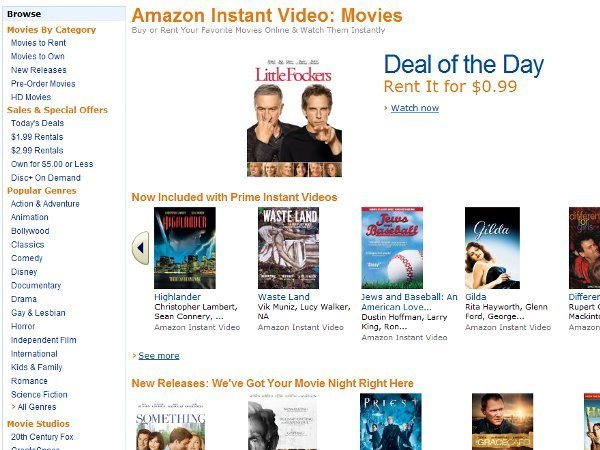
As Netflix continues to wrangle the conversation on its future, the video viewing and rental company announced that more than two billion hours of content was viewed from its site in the fourth quarter of 2011.
Now with more than 20 million streaming members globally, Netflix is the clear frontrunner in the video content consumption.
Back in March, a study by Sandvine predicted the extreme market-share and bandwidth that Netflix would maintain when it stated that the streaming of Netflix content accounted for more than 20% of the downstream activity on the Internet globally.
Now serving 45 countries, Netflix Co-Founder and CEO Reed Hastings is hoping to regain control of the conversation about his company after it has struggled with bad sentiment over price hikes, losing content contract and attempting to spin off a DVD-by-mail-only service, Qwikster.
In 2011, Netflix added to its expansive variety of TV shows and movies in the United States, signing new multi-year agreements with CBS, Twentieth Century Fox, Lionsgate, Miramax, Open Road Films, NBCUniversal, Dreamworks Animation, MGM and the Disney-ABC Television Group among others.
Netflix also outbid HBO and AMC to gain the rights of exclusivity for a new series — “House of Cards.” Executive Producer David Fincher and starring two-time Academy Award winning actor Kevin Spacey were already connected with the series when Netflix won the rights.
Another Netflix original, “Lilyhammer,” starring Steven Van Zandt of “The Sopranos” released its first trailer this week in order to gain buzz for a February 6 release for the online streaming schedule.
Netflix had nearly 23.8 million U.S. subscribers as of Sept. 30, down from 24.6 million three months earlier. Around 21.5 million customers had streaming subscriptions, and just under 14 million had DVD subscriptions — this number plummeted to 20 million, as Netflix had anticipated after the Qwikster kerfuffle.
Even YouTube has made the investment in creating original content for 2012. Google-owned YouTube, has recently put $100 million toward providing quality, original content for the social platform and in the coming months will be rolling out 100 channels created by the likes of Reuters.com, WWE Fan Nation, The Wall Street Journal, Bleacher Report and American Hipster.
The channels were created to ultimately generate at least 24 hours of original programing each day — much like an alternative cable channel.
YouTube’s creation of new and original content that users can subscribe to will presumably result in an increase in the number of minutes that each user will be on the site. Especially considering that the average YouTube video is only 4 minutes and the average user is on the site five hours a month.
It is hard to tell if the addition of original content in 2012 and 2013 will be enough to turn around the drooping opinion of Netflix — especially with such abysmal numbers coming out.
At the end of 2011, Citigroup survey looked at Netflix users since it hiked its rates and tried to spin off a separate DVD rental service and found that the percentage of people that were “extremely satisfied” with their Netflix subscription dropped drastically from 50% in May to 18% this month.
The percentage of people that were “very satisfied” did grow, however, from 33% to 39% — which puts the people in the high-end of satisfaction down to 57% from 83% in May.
More than half of Netflix subscribers (54%) didn’t change or adjust their service plans as a result of the price hike — though 28% cancelled their DVD portion.
Two billion hours in the fourth quarter is a positive narrative for the Bay Area company the looks to be entering 2012 with more gusto than it ended 2011 with.
The Netflix stock (NASDAQ:NFLX) was set to open Wednesday near $72.24 and has seen some modest positive activity over the last two days of trading.




















